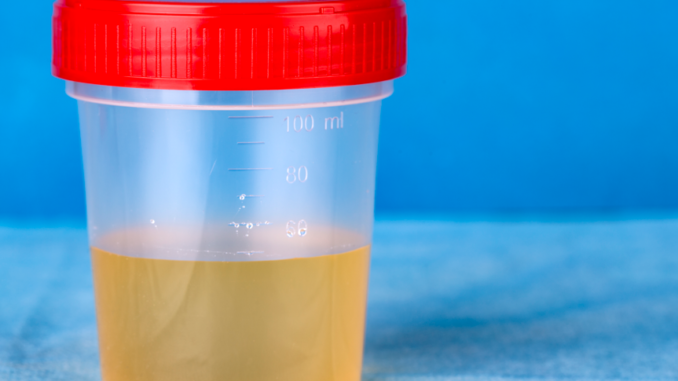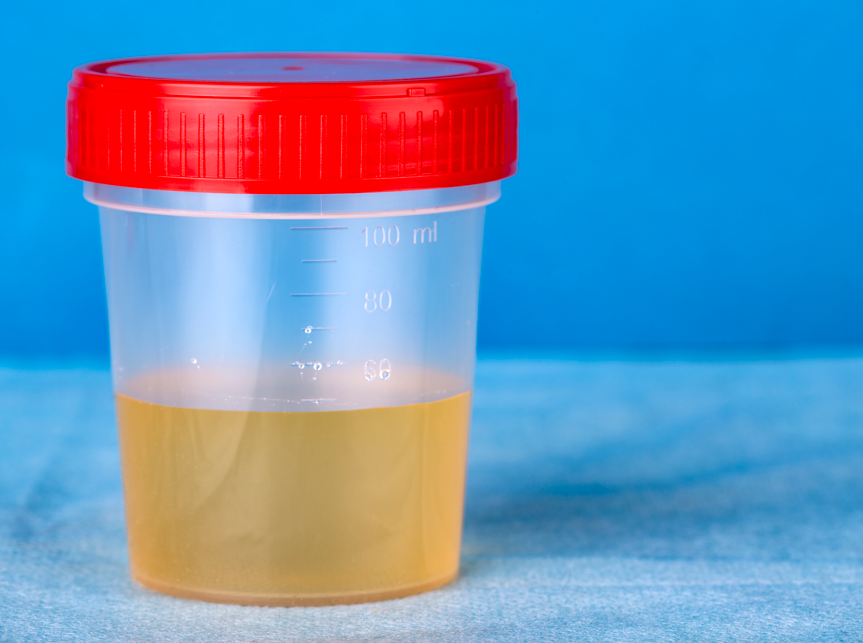
The expulsion of cloudy urine can be a symptom of a number of underlying conditions, including infections and illnesses of various kinds. The color of urine can range significantly, from being completely transparent like water to being a dark reddish brown. Urine can even sometimes look like blood.
The quantity of water and fluids in the body, apart from the ammonia content, contribute to the color of urine.
Urine that is cloudy or white in color is not a disease, but rather a symptom of an inherently present condition.
Changes in the hue or transparency of urine, if accompanied by other abnormalities, can be a question of concern.
This is particularly obvious if the cloudiness of the urine is accompanied by other symptoms of urinary irregularities, such as pain or a burning feeling during urination, or an increased need to remove urine on a more regular basis.
In most cases, individuals will first become aware that their urine is hazy upon waking up and passing the morning pee. This is because, as the night progresses, the overall water levels in the body decrease, which, in turn, causes the urine to become progressively concentrated.
Table of Contents
Why is my urine cloudy? Causes

There are a lot of different things that might make urine cloudy or hazy. The following is a list of some of the more common ones:
Urinary Tract Infection
Urinary tract infections, known as UTIs, are one of the most common reasons for urine to appear cloudy.
Pyelonephritis is a form of urinary tract infection (UTI) that can cause murky urine and passing of pus, along with urine.The incidence of this condition is higher in males than in females. Burning feeling while urinating, fever, an increased urge to urinate frequently, and pain in the flank are some of the additional symptoms that are connected with pyelonephritis.
Increased amounts of phosphate crystals
If there are abnormally high quantities of phosphate crystals in the urine, this can also lead to the production of urine that is hazy and has a putrid smell.
The illness is not harmful and is typically brought on by eating an excessive amount of asparagus or beet at one sitting. It is also possible for the condition to develop after drinking milk that has a high phosphate content. Phosphate crystals can cause urine to have a milky or murky look. This is because they precipitate in the urine.
Cystitis and other forms of bladder infection
There is a possibility that white blood cells will be found in the urine of a patient who has cystitis or another infection that affects the bladder. This, in turn, might result in changes in the color as well as the clarity of the urine, appearing cloudy or haze-like.
In addition to severe discomfort or a burning feeling when passing urine, other symptoms of cystitis include fever, chills, and an increase in the amount of times that you have to urinate.
Abnormal discharge from the vagina
When women suffer any form of vaginal discharge, they may pass cloudy urine.
This discharge could have been generated by a variety of factors, some of which are typical while others are abnormal.
Dehydration
Dehydration is characterized by an abnormally high loss of body fluids and can be the result of a wide variety of medical conditions. The loss of body fluids and water can be caused by a variety of factors, some of the most common of which are strenuous exercise or other forms of physical activity, a reduction in the amount of water that one consumes, excessive sweating, and so on. The subsequent dehydration may then induce the passing of urine with a hazy appearance.
Gonorrhea
Gonorrhea is a sexually transmitted disease (STD) that leads to an elevated bacterial count in the urine.
People who have gonorrhea may have changes in the color of their urine as well as hazy urine. This can affect both men and women.
Utilization of vitamin supplements
Numerous water-soluble vitamins, such as vitamins B and C, among others, typically do not persist in the body for an extended period of time. Only trace amounts of vitamins and minerals are retained. Urine is the means by which excess vitamins are eliminated. A hazy appearance in the urine is one of the potential side effects of taking excessive amounts of vitamin supplements.
High Protein levels in Urine
Proteinuria is a condition that is defined by the presence of high protein concentration in urine. Proteinuria is another one of the causes of urine turning murky.
During the second and third trimesters of pregnancy, some women may notice an increase in their proteinuria.
If cloudy urine linked with proteinuria occurs at the same time as hypertension during pregnancy, then women who are affected by this condition must see a doctor as soon as possible.
Different possible causes include kidney stones, prostatitis, bilharzia, and similar conditions. Cloudy urine can also be caused by a variety of other conditions. A hazy appearance in urine may also be caused by the presence of mucus in the urine on occasion.
Cloudy Urine Treatment
The majority of people who are experiencing hazy urine do not seek medical attention because the ailment typically goes away on its own. However, when cloudy urine persists for an extended period of time, medical attention is required.
The diagnosis of the underlying ailment leading to cloudy urine, is the first step in the treatment process.
Next, various drugs and treatments are administered in an effort to cure, control, or otherwise manage the underlying disease. Antibiotics and diuretics can help decrease symptoms such as infections, soreness, and discomfort that are associated with murky urine.
Patients are also required to practice proper personal cleanliness and consume a significant amount of water and other fluids.
The following at-home treatments are recommended for treating cloudy urine in cases that are not severe:
- It is generally agreed that drinking cranberry juice is one of the most effective home remedies for murky urine.
- A reduction in cloudy urine and the symptoms that accompany it can also be achieved by the consumption of coriander seeds solution. The problem could be solved by bringing the seeds and the water to a boil. After straining it, set it aside to cool down. Consume the solution on a twice-daily basis.
- The use of apple cider vinegar as a treatment for urinary tract infections is possible.Patients, on the other hand, need to be aware that this home remedy is not a replacement for the therapy they would receive from a qualified medical professional.
Authoritative Clinical References
Cloudy Urine not a criterion for UTI in older adults – https://www.ncbi.nlm.nih.gov/pmc/articles/PMC5849433/


Be the first to comment